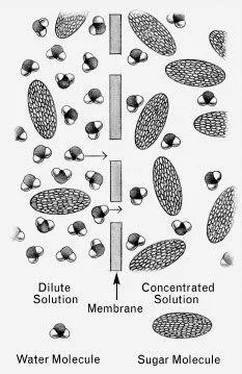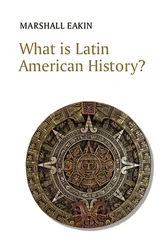Marlene Parrish - What Einstein Told His Cook 2
Здесь есть возможность читать онлайн «Marlene Parrish - What Einstein Told His Cook 2» весь текст электронной книги совершенно бесплатно (целиком полную версию без сокращений). В некоторых случаях можно слушать аудио, скачать через торрент в формате fb2 и присутствует краткое содержание. Год выпуска: 0101, Издательство: W. W. Norton & Company, Жанр: Кулинария, на английском языке. Описание произведения, (предисловие) а так же отзывы посетителей доступны на портале библиотеки ЛибКат.
- Название:What Einstein Told His Cook 2
- Автор:
- Издательство:W. W. Norton & Company
- Жанр:
- Год:0101
- ISBN:нет данных
- Рейтинг книги:4 / 5. Голосов: 1
-
Избранное:Добавить в избранное
- Отзывы:
-
Ваша оценка:
- 80
- 1
- 2
- 3
- 4
- 5
What Einstein Told His Cook 2: краткое содержание, описание и аннотация
Предлагаем к чтению аннотацию, описание, краткое содержание или предисловие (зависит от того, что написал сам автор книги «What Einstein Told His Cook 2»). Если вы не нашли необходимую информацию о книге — напишите в комментариях, мы постараемся отыскать её.
What Einstein Told His Cook 2 — читать онлайн бесплатно полную книгу (весь текст) целиком
Ниже представлен текст книги, разбитый по страницам. Система сохранения места последней прочитанной страницы, позволяет с удобством читать онлайн бесплатно книгу «What Einstein Told His Cook 2», без необходимости каждый раз заново искать на чём Вы остановились. Поставьте закладку, и сможете в любой момент перейти на страницу, на которой закончили чтение.
Интервал:
Закладка:
As soon as an egg is broken open, though, it’s fiesta time for every microorganism in the neighborhood (can’t you hear those tiny mariachis?) and it’s all downhill from there.
One more non-rotten-egg story: Recently, I had the dubious privilege of examining a four-year-old hard-boiled and dyed Easter egg. It seems that for some cockamamie reason my dear wife, Marlene, had promised to save it for her four-year-old grandson, Oscar, until he went to college. He’s eight now. Unbeknownst to me, the egg had been in our refrigerator all along. When Oscar visited us recently, he asked about his egg and Marlene produced it. Although I wouldn’t want to eat it, it was still quite inoffensive, demonstrating once again that without bacteria and conditions conducive to their growth, an egg will not turn putrid. But we’ll check it again during Oscar’s freshman orientation program for the class of 2018.
ADORABLE EGGS
Why do some peeled hard-cooked eggs have a big dimple in one end?
Ahen’s egg contains a small air pocket just inside the shell at the broad end, the purpose of which is to let the chick breathe while pecking its way out on its birthday. Because the shells are porous and permeable to gases, outside air can diffuse in and exchange with the air inside. As an egg ages and its contents shrink away from the shell, more air comes in to fill the space and the air pocket grows larger. A really fresh egg will sink in water, but as it ages and the air pocket grows bigger, it will tend to turn its broad end up. Eventually, a stale egg will float entirely on the surface.
When you cook an egg, heat expands the air in the pocket and its pressure increases. As long as the white is still liquid, it can’t flow into that air space because of the pressure. As the white cooks, it solidifies around the shape of the air pocket. Hence the dimple.
And by the way, those ropes of thick albumen that extend from the yolk to the membranes at both ends of the egg (see chapter 2) and that hang on to the yolk when you’re separating an egg are not the beginnings of an embryo. They’re called chalazae (kuh-LAYZ-eye), a word inexplicably derived from the Greek meaning “hail.” They serve to keep the yolk centered in the white. Chalazae are more prominent in very fresh eggs. There’s no need to remove them, except perhaps if you are making a soufflé or a custard and want it to be as lump-free as possible.
Some hard-boiled advice
The American Egg Board recommends the following method for making hard-cooked eggs: “Place eggs in single layer in saucepan. Add enough tap water to come at least 1 inch above eggs. Cover. Quickly bring just to boiling. Turn off heat. If necessary, remove pan from burner to prevent further boiling. Let eggs stand, covered, in the hot water about 15 minutes for Large eggs (12 minutes for Medium, 18 for Extra Large).”
But take it with a grain of salt. As the nation’s self-proclaimed eggsperts, the AEB must disseminate instructions that will work for the average cook. But one can drown in water that only averages six inches in depth.
Eggs may vary not only in size and freshness but also in their temperatures when placed in the saucepan, so they may not all reach boiling temperature as soon as the water boils. Also, different stoves and different pans will require different amounts of time to boil the water. And after the burner is turned off a heavy, porcelain-lined iron saucepan will keep its water hot longer and at a higher temperature than a thin aluminum one.
For these reasons, Marlene has not found the AEB’s recommendations to be reliable. So what does she advise? Follow the AEB’s instructions up until the water boils. But don’t turn off the heat; turn it down to a bare simmer and begin your timing. Using the AEB values as a guide, base your timing on your own experience with your own stove and saucepan, your own usual-sized eggs, your own refrigerator, and the degree of hardness you prefer in your yolks.
It’s worth sacrificing a few eggs to the gods of experimentation to find your “personal best.” Jot down your chosen simmering time on a piece of paper and tape it to the inside of a kitchen cabinet door.
And may your eggs be forever perfect—for you.
THE QUEST FOR DIVINITY
Are pasteurized egg whites okay to use for making Divinity? I tried them once, but not being a great baker did not get a good result. I ended up with little patches of sticky goo. I was wondering if the pasteurization changed the egg whites enough to make Divinity impossible.
It may be difficult for any mortal to achieve divinity, but with patience you can do it.
Pasteurized-in-the-shell eggs are intended to eliminate the hazards of the food-poisoning bacteria Salmonella enteritidis and other salmonella species that can be found in poultry, meat and meat products, raw milk, and the yolks (usually not the whites) of raw eggs, among other places. Temperatures of 160°F (71°C) or above will kill the bacteria, but using raw egg yolks in such preparations as mayonnaise and Caesar salad can be risky.
If you had been able to get past the egg-white whipping stage, your Divinity would have been safe even with unpasteurized eggs, because for one thing you’re using only the whites, and for another you’re cooking them. The sticky goo was egg white that wasn’t beaten enough, and that’s the trouble with pasteurized eggs: the whites don’t whip as well because the mild heating during the pasteurizing process partially denatures *or “cooks” the protein.
Eggs are pasteurized in the shell by being heated in warm water. A combination of time and water temperature heats them just enough to kill any salmonella without cooking the eggs. Nevertheless, pasteurized eggs will have a slightly thickened yolk and a slightly opaque white. They will cook in the same way as un-pasteurized eggs, but the whites won’t whip as well because the proteins have been slightly denatured or reconfigured and won’t form a good, stable foam as easily. While regular egg whites usually whip to the stiff peak stage in 1 to 3 minutes, pasteurized egg whites may take as long as 10 minutes.
So with one additional ingredient—more elbow grease—your Divinity will be truly divine. (Elbow grease adds no calories. In fact, it uses up calories.)
A SLIGHT EGGSAGGERATION
I always thought that thousand-year-old eggs were a myth until I saw some for sale in a Chinese market. How did people in the eleventh century know we’d want them in the twenty-first? And where have they been kept all that time?
Okay, you’re putting me on. Touché !
Thousand-year-old eggs, called pidans in Chinese, are a tongue-in-cheek eggsaggeration. Less lyrical Chinese may call them hundred-year-old eggs. Truth be told, however, they’re only about a hundred days old, which may strike you as bad enough.
Here’s how they’re made.
Take a fresh duck egg in the shell, plaster it all over with a thick coating of a paste made of salt, lime (from a garden-supply store), pine ashes from your fireplace (or charcoal-grill ashes, if that’s all you have), and strong brewed black tea, all thatched together with rice straw or even grass clippings. Now bury the thing in your garden for about three months. Dig it up, wash it off, remove the shell, and enjoy it with soy sauce and chopped ginger as an appetizer—despite the fact that it looks like a de-appetizer, with its dark green yolk and its blackish-amber “white.”
I know whereof I speak. Several years ago, when I was sailing around the world on a Taiwanese ship, I was invited to the captain’s quarters for dinner. He had his own private chef, who prepared a dazzling variety of unusual (to me) Chinese delicacies, including shark’s-fin soup, sea cucumber (also known as sea slug), pigs’ stomach linings and ovaries, and one of those eggs of uncertain age. It had a pungent, cheeselike flavor, the creamy texture of an avocado, a greenish-black yolk and a mottled blue, black, and amber-colored “white.” It wasn’t half bad, although I don’t think I’d want one every day for breakfast.
Читать дальшеИнтервал:
Закладка:
Похожие книги на «What Einstein Told His Cook 2»
Представляем Вашему вниманию похожие книги на «What Einstein Told His Cook 2» списком для выбора. Мы отобрали схожую по названию и смыслу литературу в надежде предоставить читателям больше вариантов отыскать новые, интересные, ещё непрочитанные произведения.
Обсуждение, отзывы о книге «What Einstein Told His Cook 2» и просто собственные мнения читателей. Оставьте ваши комментарии, напишите, что Вы думаете о произведении, его смысле или главных героях. Укажите что конкретно понравилось, а что нет, и почему Вы так считаете.












